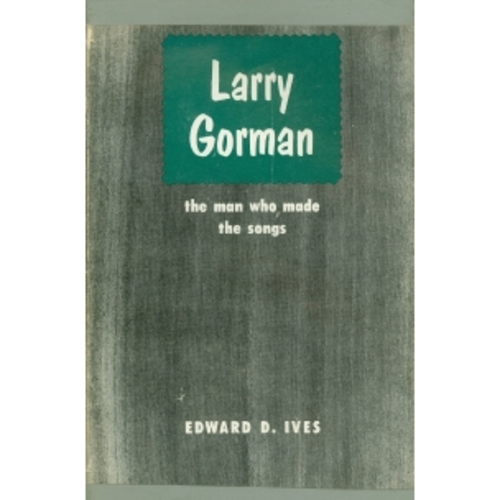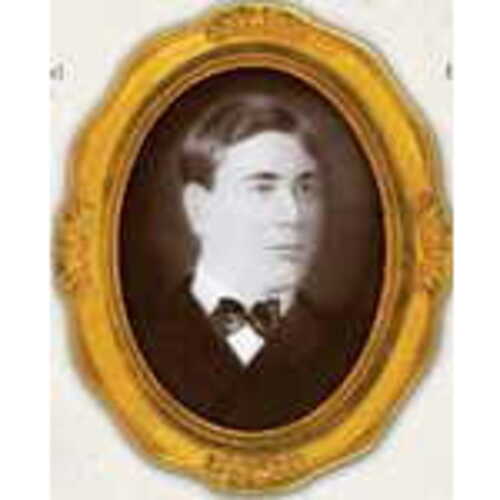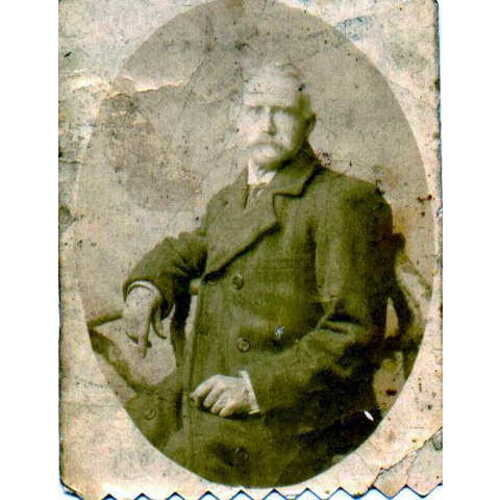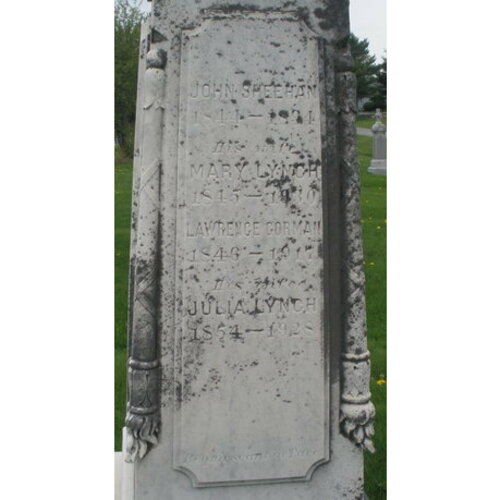
Source: Link
GORMAN, LAWRENCE, labourer and song maker; b. 10 July 1846 in Trout River (Tyne Valley), P.E.I., son of Thomas Gorman and Ann Donahue; m. first 5 Nov. 1891 Mary Mahoney, née O’Neal (d. 1896), in Ellsworth, Maine; m. secondly 7 Sept. 1897 Julia Lynch (d. 1928) in Bangor, Maine; there were no children of either marriage; d. 31 Aug. 1917 in Brewer, Maine, and was buried in Mount Pleasant Cemetery, Bangor.
The son of Irish immigrants in a basically English community, Larry Gorman had no more than the usual common-school education of the time and grew up working at whatever was available, which meant farming, fishing, and seasonally going off to the mainland to work in the lumber-woods. His travels took him first to the Miramichi area of New Brunswick and, after about 1885, to Maine. In Maine he lived initially in Ellsworth, working in the woods and on the drives along the Union River; then around 1900 he moved to Brewer (probably because his wife wanted to be nearer to her family in Bangor), where he was employed both in the Penobscot lumber-woods and in the sawmills and pulp mills of south Brewer.
Like his fellow Islander Lawrence Doyle*, Gorman was known for his local song making, but whereas Doyle’s stock-in-trade was the rather gentle and good-natured spoof, Gorman’s was invective, ranging from satires on such general topics as riches or morals to vicious personal insults directed at those who he felt had slighted him in some way. Of the former, a verse from “Barren town,” made up in New Brunswick “to speak my mind on womenkind,” is a fair sample:
Now they’ll marry a man, it’s if they can,
And keeping house they’ll go;
Till all at once they’ll shove on style,
Let the wages be high or low.
And it’s all for a cake they cannot bake –
It is fun to see their pies –
And they’ll swear that the flour is poor and sour,
And the dough it will not rise.
Of the ad hominem attacks (his usual métier), a stanza from “The gull decoy” – a song he made on Prince Edward Island about a man rumoured to have cheated him of his proper wages – will set the tone:
My oldest brother I did him torture,
I tortured him ’till he had to fly,
All on account of the girl he married,
And still in anger I did rage.
To the place where his child was buried
I went by night and dug up the grave.
He was widely known as “the man who makes the songs,” an epithet he chose and then popularized by working it into many of his verses. It is said that people were afraid of him, and it is not hard to believe that his presence in camp or community would be a matter of some apprehension. He caught that attitude nicely in “The scow on Cowden shore,” a song that is a series of satirical portraits of the men working on the sorting boom on the Miramichi River:
I have got many’s the foe
and the same I do know,
So amongst them all I go,
and it grieves their hearts full sore;
For I know that they could shoot me,
’criminate or prosecute me,
But they kindly salute me
’round the scow on Cowden shore.
Satirical song has been a strong working-class tradition not only in Canada and the United States but also in the British Isles. Since the songs themselves are extremely topical, they usually do not outlive the persons and events they celebrate. It is the tradition of making them – who makes them, why, what are the models, what is their impact, and so on – that should interest the folklorist and others studying social history. Gorman is important – with one qualification – to such study in that he embodies the entire process, the qualification being that he himself was so sensitive, so ready to take offence, that the general social import of his efforts is somewhat diminished. On the other hand, his lonely and cantankerous career can usefully serve as an antidote to easy generalities about “the folk” or “the folk process.”
More detailed information on Gorman may be found in Edward D. Ives, Larry Gorman: the man who made the songs (Bloomington, Ind., 1964; repr. New York, 1977, and Fredericton, 1993).
Cite This Article
Edward D. Ives, “GORMAN, LAWRENCE,” in Dictionary of Canadian Biography, vol. 14, University of Toronto/Université Laval, 2003–, accessed August 15, 2025, https://www.biographi.ca/en/bio/gorman_lawrence_14E.html.
The citation above shows the format for footnotes and endnotes according to the Chicago manual of style (16th edition). Information to be used in other citation formats:
| Permalink: | https://www.biographi.ca/en/bio/gorman_lawrence_14E.html |
| Author of Article: | Edward D. Ives |
| Title of Article: | GORMAN, LAWRENCE |
| Publication Name: | Dictionary of Canadian Biography, vol. 14 |
| Publisher: | University of Toronto/Université Laval |
| Year of revision: | 1998 |
| Access Date: | August 15, 2025 |






